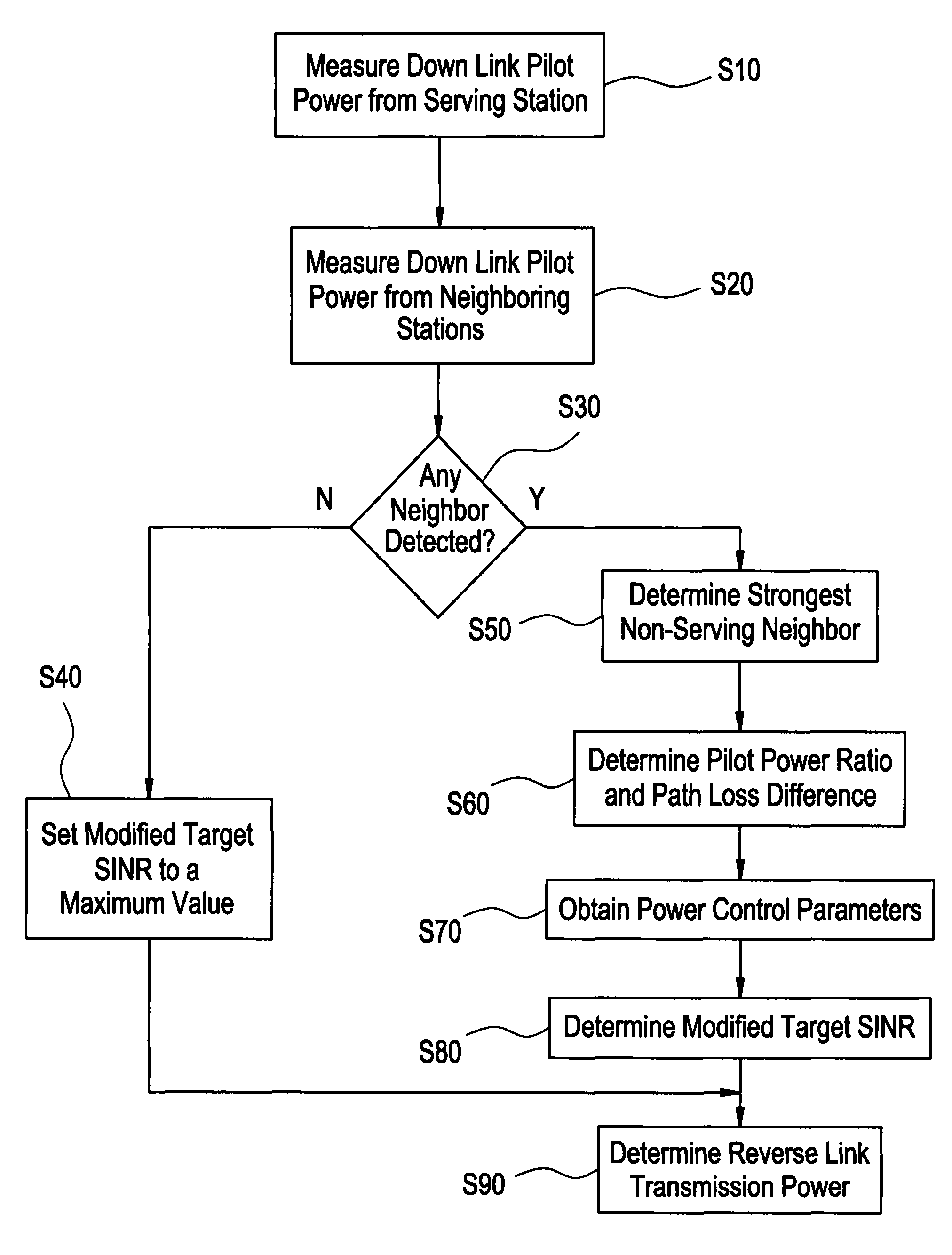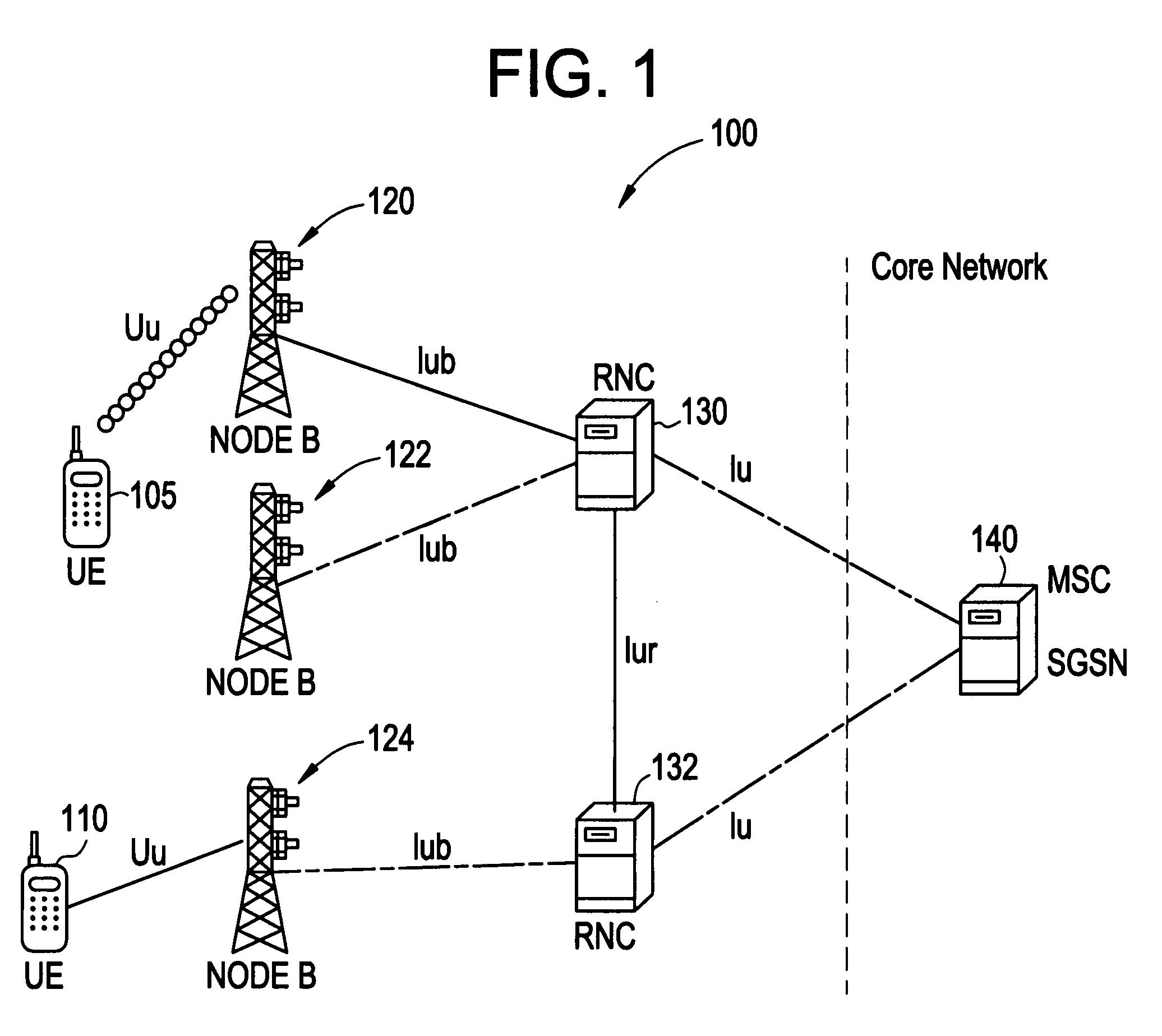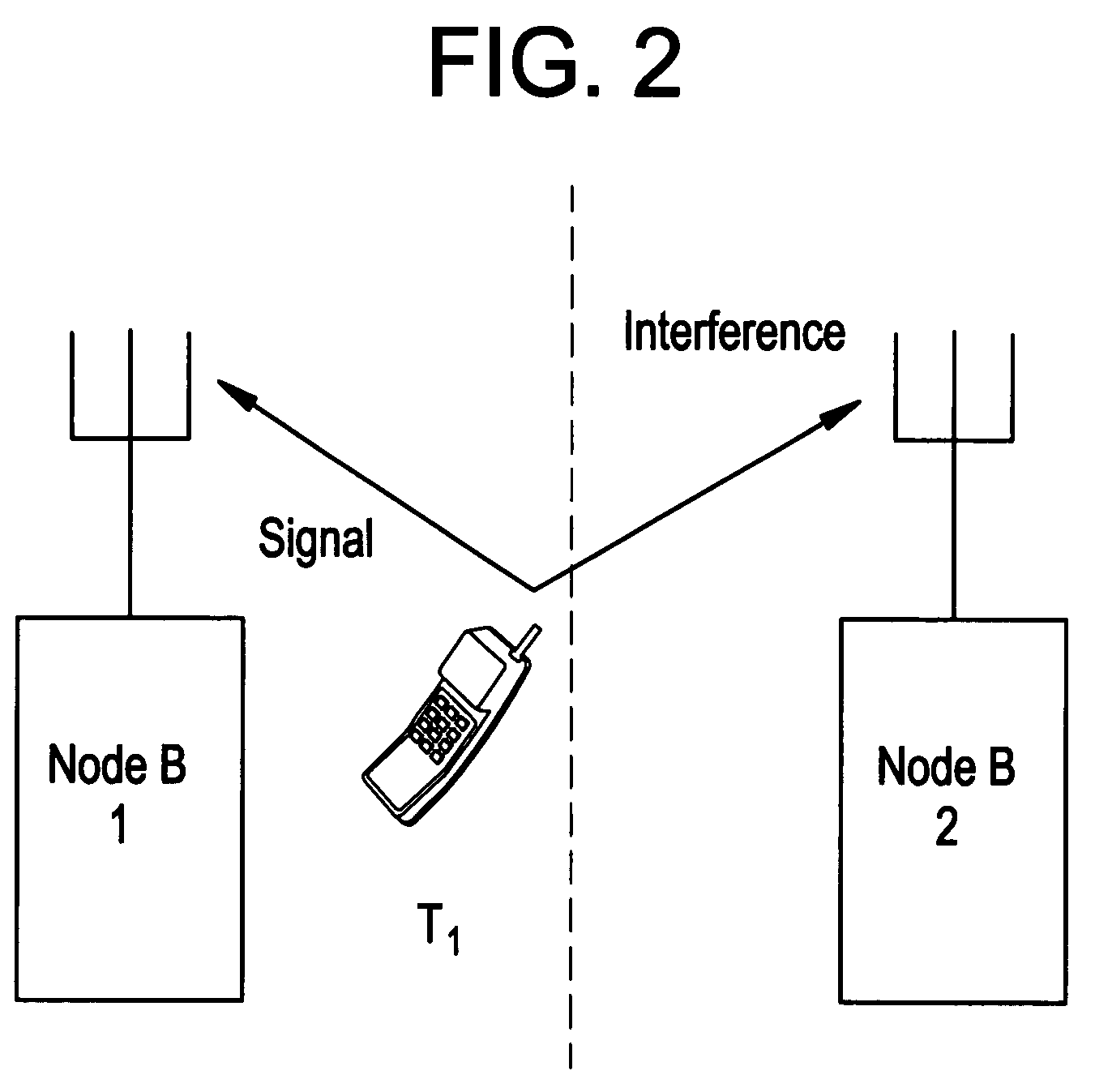Reverse link power control
a power control and reverse link technology, applied in power management, electrical equipment, radio transmission, etc., can solve the problems of loss between a neighboring station and the user equipment, not directly considering the amount, etc., and achieve the effect of small interference distribution variance and higher throughpu
- Summary
- Abstract
- Description
- Claims
- Application Information
AI Technical Summary
Benefits of technology
Problems solved by technology
Method used
Image
Examples
Embodiment Construction
[0023]Example embodiments of the present invention will be described with respect to the UMTS system illustrated in FIG. 1. However, it will be understood that the present invention is not limited to this system or to UMTS systems.
[0024]As discussed above, one problem with open loop fractional power is that it does not directly take into consideration the amount of interference a UE will generate to a neighbor cell / sector. For example, FIG. 2 illustrates an example where a UE may cause interference in a neighboring cell / sector (hereinafter collectively referred to as a cell). In FIG. 2, UE T1 is served by Node-B 1 and generates interference to Node-B 2. However, if UE T1 has a strong shadow fade to Node-B 2, then it should be allowed to transmit at a higher transmit power spectral density as compared to the case when UE T1 has a small shadow fade to Node-B 2. Another example is the case of a non-homogeneous deployment in which Node-B 2 has a much larger cell radius, in which case UE...
PUM
 Login to View More
Login to View More Abstract
Description
Claims
Application Information
 Login to View More
Login to View More - R&D
- Intellectual Property
- Life Sciences
- Materials
- Tech Scout
- Unparalleled Data Quality
- Higher Quality Content
- 60% Fewer Hallucinations
Browse by: Latest US Patents, China's latest patents, Technical Efficacy Thesaurus, Application Domain, Technology Topic, Popular Technical Reports.
© 2025 PatSnap. All rights reserved.Legal|Privacy policy|Modern Slavery Act Transparency Statement|Sitemap|About US| Contact US: help@patsnap.com



